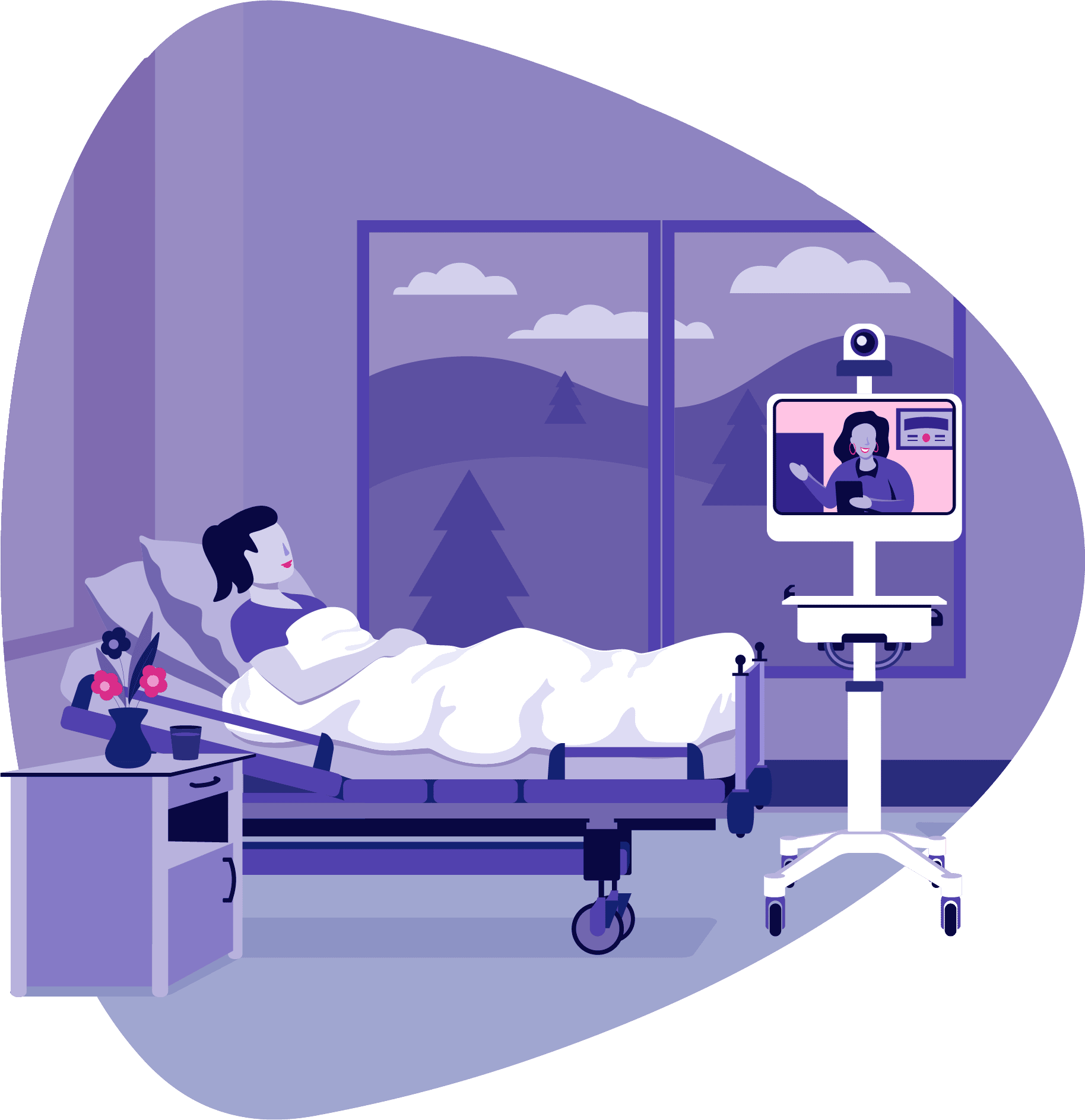Iris clinicians are at the heart of what makes our organization such a special place to work. That’s why we’re turning the spotlight on the amazing work they’re doing every day. This month, we’re sitting down to talk with Dr. Jessica Jeffrey.
Q: How did you find Iris and decide you wanted to be an Iris provider?
A: I was working for a community mental health clinic, and when the pandemic hit, we quickly moved to telehealth. It was the first time using telehealth for just about all of us, but I found there was a lot I liked about it. Personally, the schedule worked well for my family. It also worked well for many of my patients, whether they were in rural or urban communities.
For patients in urban areas, telehealth made getting care easier because of the challenges brought on by the COVID-19 pandemic. Telehealth also worked well for patients with conditions that make it difficult to leave their homes and for moms with young children. It was much easier for these patients to see me from their kitchen table and not have to pack up maybe two or three children and bring them to the visit.
So, when I had the opportunity to look for a different type of clinic, I looked for telehealth. I applied to Iris because I happen to know Dr. Milam from my training days. I figured if Dr. Milam was associated with the enterprise, I should probably apply, and I did.
Q: What does a typical day as an Iris Telehealth provider look like for you?
A: I am part of a new initiative with a large enterprise partner in Pennsylvania who serves a wide range of patients in rural communities and some urban areas. They wanted Iris’s help managing the large influx of referrals coming into their clinic. Currently, I’m doing telehealth from home, and I’m working with adults. In the future, I’m probably going to start doing some on-call pediatric work on the weekends.
Before starting the clinic, we spent a lot of time coordinating with the partner and discussing potential issues – whether those issues were related to IT or crisis support. We also spent time working on the scheduling and getting to know the support staff. We talked with the LCSWs from Iris about how we would work as a team and how to triage and manage workflow.
Now that it has started, I mostly spend my time seeing new patients, and we have weekly meetings with the care team to assess what’s working, what’s not working, and how we can make this better.
Q: What do you love about being a telepsychiatry provider?
A: Well, number one, I love being a psychiatrist. I think it’s the most interesting medical specialty there is. There is a fair amount of medicine even within a psychiatry practice, which surprises some people. However, a lot of patients have multiple medical problems and because of the nature of their psychiatric illness, sometimes their physical health is neglected. So, our patients are often fairly sick and there is a lot of coordination with the other specialties, which I enjoy.
Being a psychiatrist is so interesting because you get to know the people and follow them. And outpatient care is like a new chapter in the book in learning about them. I’m very fortunate to be in this specialty.
I like the flexibility of being in telepsychiatry. It’s a little easier for me with my schedule. It’s also easier for the patients, especially for those who are going to have more trouble with transportation, whether it’s the expense of the ride, or not having a car. It’s not for everybody, but we’re doing a good job of making sure that people who are eligible for this kind of service can utilize it.
Q: How do you foster connection with patients virtually?
A: When I first have a visit with a patient, the first few things I tell them are, “Here’s what we’re going to do. If you have any problems with the connection, I’m going to call you right away. Don’t despair if there are problems with the communication or telehealth equipment.” Then, we launch into it. If you’re looking at the camera and talking to someone like they’re a human being, pretty soon it feels like a normal conversation.
I do have the advantage of practicing telehealth in what’s already a FaceTime, Zoom sort of environment. Many of my patients are already pretty familiar with having video chats with their friends and families. So, it’s not much of a leap to talk to the doctor.
Q: As a healthcare professional, how do you manage work-life balance?
A: At the end of the day, I try very hard to stop being Dr. Jeffrey and start being Jessica. I try very hard to keep those boundaries between work. We all have those moments where we’re thinking about a particular patient who was having a hard time when we’re brushing our teeth. But, when I’m off, I’m with my family and doing things I enjoy doing – and when I’m back at work, I’m in that mode, and that’s what I do. In psychiatry it’s important to have those distinct boundaries because there is so much of a human element to what we do. So, you have to be able to leave it in the office.
Q: What are your biggest learnings from your time at Iris?
A: Iris has been a lot of fun so far. The people I’m working with have a good sense of humor. They’ve been refreshingly vocal about maintaining boundaries and work-life balance right out of the gate. When you hear that coming from the administrative side, it’s very appealing for physicians because they don’t feel they’re the only ones advocating for work-life balance. So, I felt really good about that.
Iris has really impressed me in how they think about helping any particular partner. There’s an enormous amount of work that goes into the logistics of putting a new physician in a clinic, and supporting that clinic once it’s up and running. I came to understand that it’s more than just putting someone in the seat and filling a position, it’s the ongoing support with that clinic.
Working for Iris and with this partner is exciting because they’re working with you all along the way, to serve the clinic. This approach is probably quite unique amongst telehealth companies.
Q: Why do you think telepsychiatry is important to the future of mental healthcare?
A: It’s access. Many of the patients we serve, particularly in community mental health and larger university settings, are communities with the most access issues. Telepsychiatry is one of the ways we can bring access to these people — whether it’s meeting people where they are or increasing provider availability. By increasing provider availability, organizations can bring in physicians who may not necessarily be in that area. The expense and time commitment to recruit and bring a physician to a new location is enormous – so if organizations can recruit someone who may not be in that area but is willing to sit down and learn the locality remotely, then you’re improving access to patients.
At Iris, we believe our providers should be respected, valued, and applauded for the work they do, and we couldn’t be more proud to say, “thank you” to our very own Dr. Jeffrey. If you’d like to learn more about working for Iris Telehealth, contact us today.



